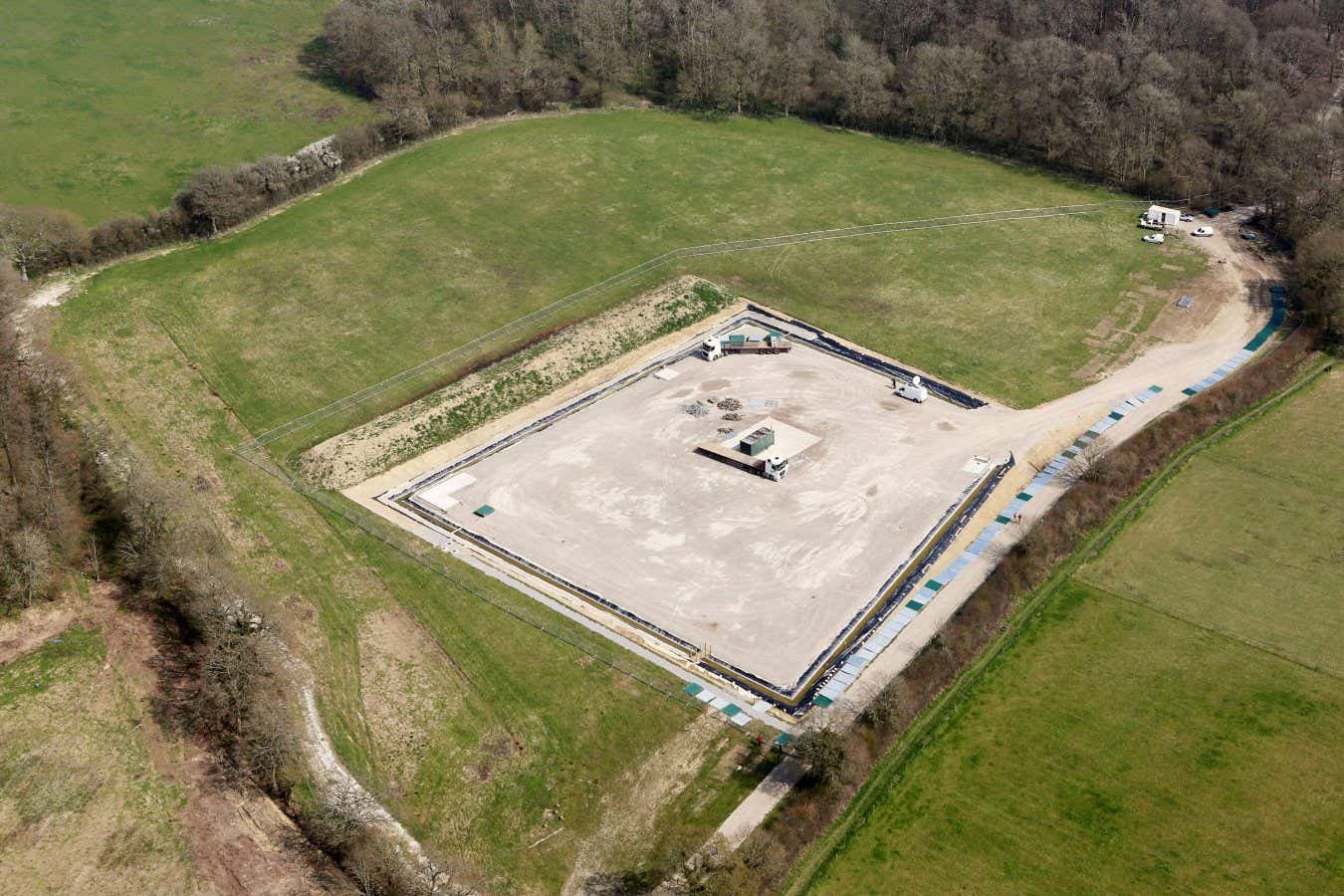The Horse Hill oil field was discovered in 2015
Invicta Kent Media/Shutterstock
More than 100 earthquakes that rocked southern England were likely triggered by oil extraction, experts say. Previous research had ruled out a link, but fresh information about the area’s geology has established a likely link.
The earthquakes were all relatively small, measuring between 1.34 and 3.18 on the Richter scale, and occurred near Newdigate in Surrey in 2018 and 2019. Residents reported their houses shaking for several seconds.
There was speculation at the time that the earthquakes were linked to oil extraction by UK Oil & Gas, although the epicenter of the earthquakes was between 5 kilometers and 10 kilometers from the company’s Horse hill drilling site. But previous research by the British Geological Survey (BGS) and others determined that the earthquakes, although rare and relatively close to the borehole, were natural and random.
Now, Matthew Fox and Philip Meredith at University College London have taken a new look, using the latest understanding of the rock composition in the area, and suggest that the earthquakes were actually induced by oil extraction.
The pair ran more than a million computer simulations based on the location and size of the oil extraction, along with details about the geology of the surrounding area, and found that the predictions of earthquakes matched real events more than previously thought.
When oil is extracted from deep underground, it changes the pressure below the surface, which can cause rock movements that lead to earthquakes. Fox says that in the past there were discrepancies between dates when earthquakes occurred and when oil was extracted, which can now be explained by taking into account the geology of areas being drilled.
The pair found that in regions of porous Portland rock, pressure changes and rock movement could be almost simultaneous, while in areas of dense Kimmeridge Clay there could be a delay, as pressure changes took time to propagate.
“For me, this increases the probability [that oil extraction led to earthquakes],” says Fox. “The correlation between these two — between oil production and seismicity — is quite strong, and that suggests there is a connection.”
Fox says there is still a chance the connection is coincidental, but that this is now less likely than previous research suggested. He expects further statistical analysis to precisely quantify the likelihood of a coincidence, but stopped short of making an estimate with current data.
UK Oil & Gas controlled oil extraction at Horse Hill until last October when work was halted following the withdrawal of planning permission by Surrey County Council following a lawsuit brought by campaigners supported by Friends of the Earth.
A spokesperson for the company says so New Scientist: “This is an event that was answered and addressed many years ago when the BGS seismologists were convinced that it was a natural event associated with movement on a deeper unassociated fault many kilometers deeper and distant from the site.”
But Stuart Haszeldine at the University of Edinburgh, who was not involved in this particular study, but has done his own work with colleagues, says that a link between oil extraction and the earthquakes is now highly probable.
“We have done a detailed study of these small earthquakes in Surrey and the possibility that tremors were associated with activities at the Horse Hill oil field,” says Haszeldine. “In my professional judgment there was a clear correlation between earthquake timing and operational activities to produce oil and gas from the Horse Hill site.”
Subjects:
